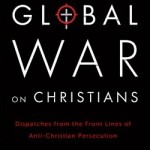A study in Chicago comes to an interesting conclusion:
American foreign policy is handicapped by a narrow, ill-informed and “uncompromising Western secularism” that feeds religious extremism, threatens traditional cultures and fails to encourage religious groups that promote peace and human rights, according to a two-year study by the Chicago Council on Global Affairs.
The council’s 32-member task force, which included former government officials and scholars representing all major faiths, delivered its report to the White House on Tuesday. The report warns of a serious “capabilities gap” and recommends that President Obama make religion “an integral part of our foreign policy.”
The Chicago Council on Global Affairs could have saved time and money by just reading me two years ago:
It is with the language of faith that Islamic terrorism must be engaged and defeated, and therein lies the disconnect for the diplomatic West. Having reasoned itself out of faith, its incomplete arsenal is fit for battle, but not for victory. The West can speak only of borders, boundaries, markets, and measurement. Faith exists beyond boundaries and borders; it defies markets and measurement. The negotiables of the West are worldly and “the world” means nothing in the face of paradise. Islam, like all faith, is not of this world but of the world to come. Islam’s extremists, like all extremists, would like to speed their agenda along.
. . .
We should consider that Islamic terrorism may not be defeatable, except on its own terms, on the battlefield of the supernatural.To secularists and avowed agnostics who work to expunge all religious language from governments, that idea is anathema. I doubt it makes many Christians or Jews happy, either. But the war on terror is as much about ideas and ideals as about security and strategy. If one side’s ideas are mayhem in service to transcendence and the other side is thinking about meetings and signed papers, then secular Western diplomacy is boxing with one glove.
Truthfully, though, I was only jumping off of Pope Benedict’s Supernatural Gambit.
Some wags will dismiss this study, indulging in a bit of paranoia to claim that it is nothing more than “Obama’s Chicago friends trying to “help him and his Muslim interests.”
Paranoia will not help, though. Two years ago it was urgent that the West understand the need to acknowledge and include religious ideas and language in its diplomacy; things are not less urgent, today.
Related: George Weigel on The Vatican and Russia











